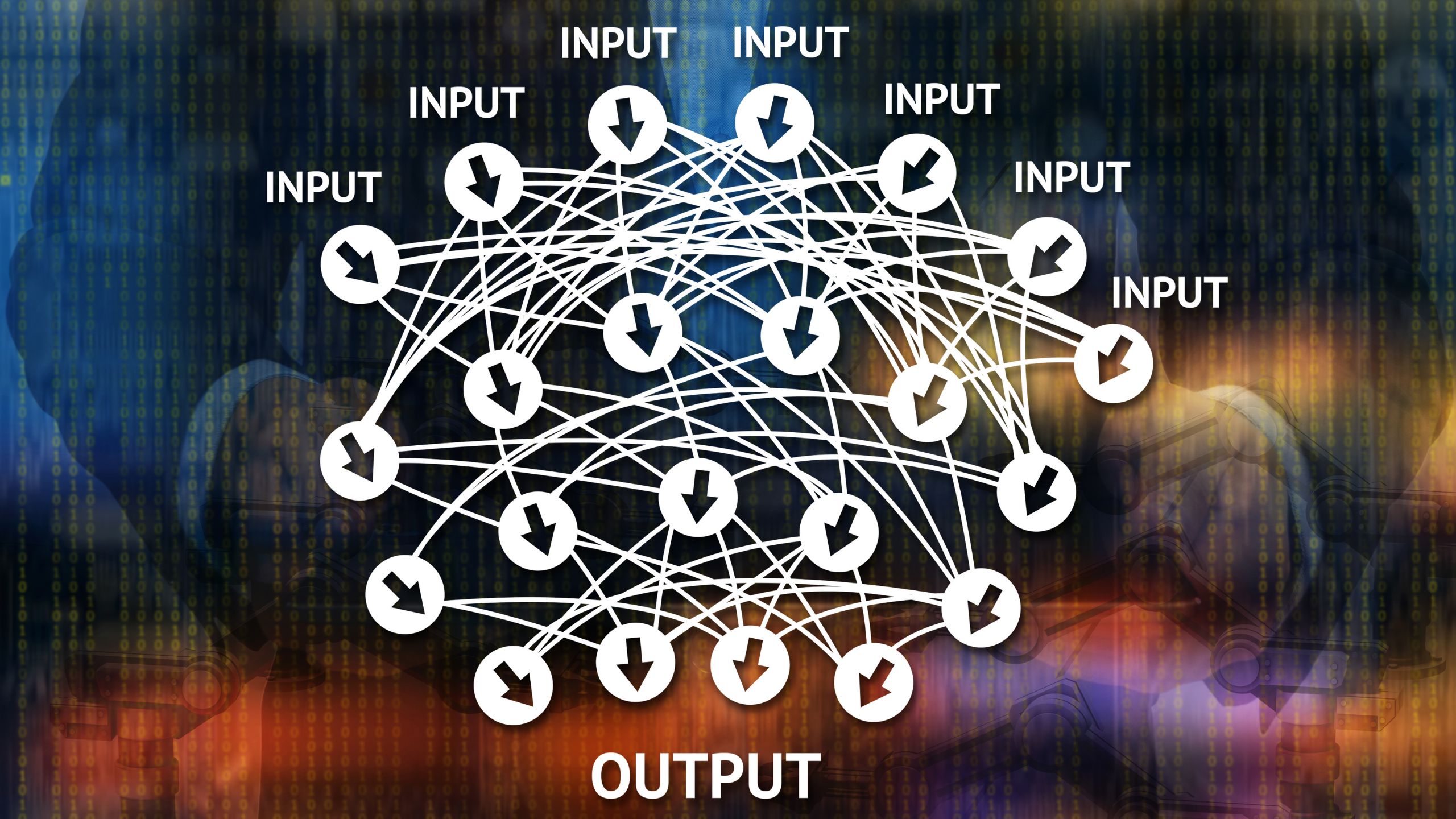
Olaf Witkowski是Cross Labs的首席科学家,该实验室旨在弥合情报科学与AI技术之间的鸿沟。 A researcher of artificial life, Witkowski started in artificial intelligence by exploring the replication of human speech through machines.维特科夫斯基(Witkowski)是人工生命的研究者,他通过研究机器对人类语音的复制而开始从事人工智能。 He founded Commentag in 2007, and in 2009 moved to Japan to continue research, where he first became interested in artificial life.他于XNUMX年创立了Commentag,并于XNUMX年移居日本继续研究,在那里他首先对人造生命产生了兴趣。
用他自己的话说,维特科夫斯基说:“人工智能意味着您正在尝试尽可能复制人类的智力。 人造生命说,好的,那很好,但是让我们尝试了解人类的智慧 and recreate it from the fundamental knowledge we have acquired.并根据我们获得的基础知识进行重新创建。 It's more constructive.这更具建设性。 It's a bit like the Richard Feynman quote: what I cannot create, I do not understand.”这有点像理查德·费曼(Richard Feynman)的话:我无法创造,我不理解。”
在这次采访中,我们与维特科夫斯基谈了他在人造生活中的工作,它将如何推动技术发展以及为什么他认为深度学习已经消亡。
我知道您专注于人造生活,但是您能告诉我们您在AI领域的工作程度吗?
I work with an AI company called Cross Compass as part of Cross Labs.作为Cross Labs的一部分,我与一家名为Cross Compass的AI公司合作。 I've talked with a lot of AI companies over the last three years in Japan.在过去的三年中,我与许多AI公司进行了交谈。 I wanted to do more research into artificial life, and Cross Compass founded a research center which I direct.我想对人造生命进行更多研究,Cross Compass成立了我领导的研究中心。
在Cross Labs,我们涵盖了三个主要领域:情报的神经科学,代理和学习的理论以及集体AI。
过去几年中,您在AI和机器学习中注意到了哪些趋势?
So the thing is, I'm very biased.所以事情是,我非常有偏见。 I really like things that are open-ended.我真的很喜欢开放性的东西。 For example, things that create complexity, or things that model new parts of the mind.例如,产生复杂性的事物或为大脑的新部分建模的事物。 I really like attention-based algorithms;我真的很喜欢基于注意力的算法; not like attention to humans, but attention mechanisms in neural nets.不像关注人类,而是神经网络中的关注机制。
Motivation has been very interesting.动机非常有趣。 The basics of Karl Friston's free energy principle are really attractive.卡尔·弗里斯顿(Karl Friston)的自由能原理的基础非常吸引人。 Valuing surprise and the idea that you want to be surprised.重视惊喜和想要惊喜的想法。 That idea existed already, but Friston translated it, he modeled the error and the difference between prediction and result.这个想法已经存在,但弗里斯顿翻译了一下,他对误差以及预测和结果之间的差异进行了建模。 It's called predictive coding, and it's used in machine learning.这称为预测编码,用于机器学习。 I'm not in love with everything about it, but at the end of the day, it works.我不喜欢它的所有内容,但是最终,它仍然有效。
我很喜欢从生活系统中汲取一些小原则,然后将它们转换为编码系统。

您是否注意到更多关于复杂性和开放式方法的信息?
Yeah.是的So the trends I've noticed, they're not new.因此,我注意到的趋势并不新鲜。 People have been working on them.人们一直在努力。 But I think GANs are super nice.但是我认为GAN非常好。 I could talk about GANs for a long time, because it's an example of two models interacting with each other adversarially to create complexity and make new discoveries.我可以谈论GAN的时间很长,因为这是两个模型相互竞争以创建复杂性并做出新发现的示例。
We have one student who is using GANs for cellular automata, trying to see if you can discover new rules and create more complexity.我们有一位学生正在使用GAN进行细胞自动机测试,试图了解您是否可以发现新规则并增加复杂性。 It was partially inspired by它的部分灵感来自 本研究。 You see immediately the application of that, right?您会立即看到它的应用,对吗? How can we create systems automatically?我们如何自动创建系统? What's the meta algorithm that can create more discovery for free?可以免费创建更多发现的元算法是什么? So it's about algorithms that try to discover more things.因此,它是关于尝试发现更多事物的算法。
I know discovery is a big part of your research into artificial life.我知道发现是您对人工生命研究的重要组成部分。 What year did you make the move into the field?您是哪一年进入该领域的?
2010, I think?我认为XNUMX年? Given my interest in the nature of language, it was natural to try to recreate it with AI.鉴于我对语言本质的兴趣,很自然地尝试使用AI进行重新创建。 And to recreate it properly, one must understand what principles in the living systems are necessary to make this communication happen.为了正确地重新创建它,必须理解活体系统中的哪些原理才能使这种通信发生。 This happens to be an important research question in Artificial Life.这恰好是人工生命中的一个重要研究问题。 It's a rather small field, but really creative and promising, with plenty of key researchers here in Japan.这是一个很小的领域,但确实具有创造力和前途,在日本有许多关键研究人员。
2018年,我们在东京举办了一次大型会议,并将于明年XNUMX月举行另一次会议。 AI本身是一个非常有趣的领域,它将继续发展,但是深度学习(这就是人们常说AI的意思)已经死了。
What I mean is, it's kind of an old idea.我的意思是,这是一个古老的主意。 It was invented in the 60s, although the first models weren't doing any learning.它是在XNUMX世纪XNUMX年代发明的,尽管最初的模型没有做任何学习。 The first attempts at learning came later, even before backpropagation existed.甚至在反向传播存在之前,就进行了第一次学习尝试。 We recently made neural learning work extremely well with convolutions and other tricks, as we also have huge amounts of computation we didn't have before.最近,我们通过卷积和其他技巧使神经学习效果非常好,因为我们还拥有前所未有的大量计算能力。
It's pretty cool, and we've made this combination with backprop in those architectures, and now we're applying this research to many application areas.这非常酷,我们已经在这些体系结构中将它与反向传播结合起来,现在我们将这项研究应用于许多应用领域。 But the research in deep learning is actually dead.但是深度学习的研究实际上已经死了。
当您说死了时,您是说有天花板并且我们已经达到天花板了吗?
We are on a plateau.我们处于高原。 And we'll be stuck on that plateau until we discover learning principles that are radically different.在发现完全不同的学习原理之前,我们将被困在那个平台上。 As long as we spend time on tuning the current paradigm, we are not focusing on searching for other, different AI algorithms.只要我们花时间调整当前范例,我们就不会专注于搜索其他不同的AI算法。 Within the field of AI, researchers are slowly starting to explore new ideas, but ALife (artificial life) was already doing that for a few decades.在AI领域,研究人员正在缓慢地探索新的想法,但是ALife(人工生活)已经在这样做了几十年。 This is why I feel like ALife is the natural next step in the large field.这就是为什么我觉得ALife是大领域中自然而然的下一步。 It's not the only one, of course, but it's a very promising one.当然,这不是唯一的一个,但它是非常有前途的。
您对人造生活的哪些领域感兴趣?
ALife研究如何从下至上重现生活。 ALife有一个子领域,称为开放式进化,这是我特别感兴趣的领域。它研究的是能够永远自己创造新颖性的机制。
So, think of the Earth.因此,请思考地球。 It's isolated, but it keeps creating more diversity.它是孤立的,但不断创造更多的多样性。 We have different species, we create and recreate theorems as humans;我们有不同的物种,我们像人类一样创建和重建定理。 so why do we have all this diversity, and all this richness?那么为什么我们拥有所有这些多样性和所有这些丰富性呢? Think of the earth as a box;将地球想象成盒子; how come when you shake it, and wait for long enough, suddenly you get humans?当您摇动它并等待足够长的时间时,突然间您会变成人类吗? And then from that you have technology, and then you have robots, and then you have robots that kill all the humans…然后,您有了技术,然后有了机器人,然后又有了杀死所有人的机器人……
好吧,那是最后一个笑话,但是您会得到所有令人兴奋的东西。
In our research into open ended evolution, we try to understand phase transitions in the emergence of intelligence: how come if you shake a box of stuff, the stuff turns into more interesting stuff?在我们对开放式进化的研究中,我们试图理解智能出现中的相变:如果您动摇一箱东西,这些东西会变成更有趣的东西吗? How come atoms naturally evolve through time into intelligent machines?原子如何随着时间自然演化为智能机器? I apply those principles to machine learning, basically.基本上,我将这些原理应用于机器学习。 You're applying that idea to create algorithms that keep creating, and within that you have the invention of, or rather the emergence of, goals.您正在将这个想法应用到创建不断创建的算法中,并且在其中找到了目标,或者更确切地说,目标的出现。
Concepts like intrinsic motivation are a close example.内在动机等概念就是一个很好的例子。 The idea is to get intelligent behavior without hard-coding it, and without giving the machine any data.这个想法是获得智能行为,而无需对其进行硬编码,也无需提供任何数据。 Instead, from internal goals, the agent will try to相反,从内部目标出发,代理商将尝试 发现解决方案,新的解决方案。 We want to avoid hard coding rules into a robot or just presenting it with loads of data.我们要避免将硬编码规则编入机器人或仅向其呈现大量数据。
We want them to be fully emergent instead, by using fundamental principles of intelligence, such as maximizing their “empowerment” over the whole system, or their acquisition of relevant information.相反,我们希望通过使用智能的基本原理(例如,最大化他们对整个系统的“授权”或获取相关信息)来使它们完全出现。 We want the agent to discover by itself the goals that will drive it to better solutions, and keep improving them continuously.我们希望代理人自己发现目标,以推动其寻求更好的解决方案,并不断进行改进。 For example, we want robots to implement curiosity, and all skills that make babies excellent learners.例如,我们希望机器人实现好奇心以及使婴儿成为优秀学习者的所有技能。 We want to implant the mechanisms that create similar drives inside a robot.我们希望将可创建类似驱动器的机制植入机器人内部。 If it works, that's a better way to get intrinsic motivation.如果可行,那是获得内在动力的更好方法。

I guess along the way to looking at what life is, you've got smaller goals like what is intelligence, what is curiosity, what is motivation.我认为在观察生活的过程中,您有较小的目标,例如什么是智力,什么是好奇心,什么是动力。 From your perspective, what kind of practical solutions or use cases do you see for this kind of research?从您的角度来看,您对此类研究有什么样的实际解决方案或用例?
So I think if you're trying to solve problems now, that can drive you for a while, but it's the same as the environment.因此,我认为,如果您现在想解决问题,那可能会花费您一段时间,但这与环境相同。 What I mean is, when you try to fix a problem within a time window of one to four years, for example, yeah, you can fix or patch it, but it will reappear in a few years.我的意思是,当您尝试在一到四年的时间范围内解决问题时(例如,是的),您可以解决或修补该问题,但是几年后它会再次出现。 So I think of ALife as long-term research.因此,我将ALife视为长期研究。 It's not going to solve problems itself;它本身不会解决问题;它不会解决问题。 it's going to solve problems as a side effect of better understanding what nature is about.它会解决问题,这是更好地了解自然是什么的副作用。
在组织实验方面,您如何定义所需的内容?
There is of course the big question: what is life?当然有一个大问题:生命是什么? What is intelligence?什么是智力? So that's my big question.所以这是我的大问题。 What is the nature of intelligent systems?智能系统的本质是什么? What is the difference between an intelligent system and, say, this cup of coffee?智能系统和例如这杯咖啡有什么区别? People say cups are not intelligent because they're just objects, but actually we are objects too;人们说杯子不是智能的,因为它们只是对象,但实际上我们也是对象。 we're just more complex.我们只是更复杂。
We have other degrees of freedom too, but even a cup has affordances;我们也有其他自由度,但即使是杯子也有能力。 ways to grab it, et cetera.抓住它的方法等等It has intelligence in the sense it is made in a shape that has been selected over many generations in terms of cultural evolution.从某种意义上说,它具有智慧,并且其形状已根据文化发展经过了几代人的选择。 This is the same for all objects, and it's a sort of intelligence.所有对象都一样,这是一种智能。
So there are things that we can measure here, but we don't have yet the theory to measure it.因此,有些事情我们可以在这里测量,但是我们还没有理论可以测量它。 So trying to understand that is the purpose of the field, and the part of the field I'm interested in.因此,试图理解这是该领域的目的,也是我感兴趣的领域的一部分。
您如何看待AI和ALife下一步发展?
So we know that backprop is really quick, but we need to either tweak AI or find another paradigm.因此,我们知道反向传播确实非常快,但是我们需要调整AI或寻找其他范例。 Another paradigm is going to take time, so for now we can add tweaks to make it more interesting.另一个范例需要时间,因此现在我们可以添加一些调整使其更有趣。
Examples for AI are attention mechanisms, making them adversarial, or making them communicate, which hasn't been talked about so much.人工智能的例子有注意力机制,使它们成为对抗性的,或使它们进行交流,这还没有被广泛讨论。 That's actually a lot of my research;这实际上是我的大量研究; collective AI.集体AI。 So GANs is about conflict, right?所以GAN是关于冲突的,对不对? But I believe in nature you also have parasitism and cooperation mutualisms and that's actually very easy to translate into math;但是我相信自然界中也存在寄生性和合作性,这很容易转化为数学。 it's basically networks helping networks, with both gaining from the interaction.它基本上是网络帮助网络,两者都从交互中受益。
We did it with two networks, and the basic system works by having a teacher and a learner, and you try to transfer knowledge.我们是通过两个网络来完成的,而基本系统是由一名老师和一名学习者来完成的,然后您尝试转移知识。 It's very tricky if they have different tasks, but maybe they still have knowledge they can transfer to each other.如果他们有不同的任务,这是非常棘手的,但是也许他们仍然拥有可以相互转移的知识。
The transfer of knowledge is one thing, but there's also collaboration;知识的转移是一回事,但也存在合作。 maybe you have systems that can discover new solutions together they couldn't discover alone.也许您拥有可以一起发现新解决方案的系统,而他们是无法单独发现的。 We wrote我们写 一篇论文 about this, and it's an exciting research direction.关于这一点,这是一个令人兴奋的研究方向。 It works on the principle that maybe there is an intrinsic value to misinterpreting information, leading to the type of learning that would not have happened without social relations among the learning agents.它的工作原理是,误解信息可能具有内在价值,导致没有学习代理之间的社会关系就不会发生的学习类型。 Communication-based AI, basically.基本上,基于通信的AI。
还发表在: https://lionbridge.ai/articles/deep-learning-is-dead-towards-artificial-life-with-olaf-witkowski/










